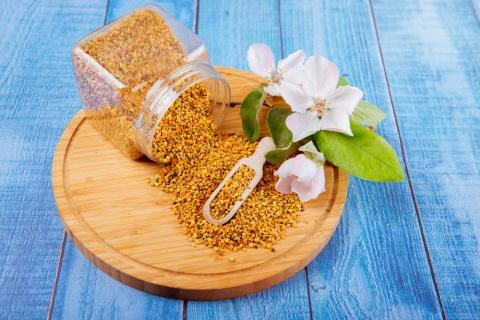
Stuffed noses, itchy throats, and puffy red eyes tend to be the accessories of choice this time of year. Most people turn to pharmaceuticals to get instant relief and while these certainly have a place, knowing how to deal with late spring allergies holistically may prove to be a better long-term solution.
Most media outlets report that pollen counts seem to be getting worse each year, and while it’s easy to chalk this up to hyperbole, there’s truth in the statement. A 2016 study published in Environmental Health Perspectives suggests that pollen counts are rising each year, thanks, at least in part, to climate change. Longer growing seasons have allowed some plants to bloom for longer and unfortunately, most of these are allergy-causing.
Knowing what to do can be the difference between enjoying longer days in warmer spring temperatures and vowing to stay indoors until allergy-causing blooms are no longer a threat. Here are five holistic remedies to treat late spring allergies.
1. Acupuncture
Acupuncture, one aspect of Traditional Chinese Medicine, is used to stimulate points in the body, typically through the use of fine needles. A 2014 study published in Allergo Journal International found that acupuncture reduced nasal and conjunctival conditions associated with allergic rhinitis—more commonly known as hay fever.
Unfortunately, there are not many well-documented studies that demonstrate the efficacy of acupuncture with regards to alleviating allergies. Acupuncture might still be worth a try, but be sure to find a qualified practitioner.
2. Supplements
Herbal supplements can be helpful in reducing symptoms associated with pollen-related allergies. Quercetin, a flavonoid (or plant-pigment) found in fruits and vegetables like grapes, apples, berries, and broccoli can also hlep. A 2016 review in the journal Molecules mentions the anti-inflammatory effects of quercetin, and the reduction of symptoms the supplement can have on both asthma responses and allergic rhinitis.
Probiotics might also be helpful in reducing seasonal allergy symptoms. A 2013 review in the North American Journal of Medical Sciences discusses the benefits of taking probiotics to reduce allergy responses. While the underlying mechanism involved isn’t fully understood, it’s worth adding probiotic-rich foods to your diet—like kombucha, kefir, or kimchi—or supplementing with high-quality probiotic capsules.
3. Garden Herbs & Plants
Stinging nettle might seem more like a nuisance than a cure-all, but this humble plant has been used for hundreds of years as a nutritious food source, an anti-inflammatory, a bone strengthener, a rich, earthy tea, and now, an allergy reliever. A 2017 study by Iranian Journal of Pharmaceutical Research administered a stinging nettle root extract to patients. One-month later, a reduction in clinically severe allergy symptoms was noted.
Try brewing a cup of nettle tea, or taking freeze-dried capsules to alleviate symptoms associated with seasonal allergies.
4. Bee Pollen
Pollen is likely the cause of your allergies, so bee pollen couldn’t possibly help—or could it? A 2015 review in the journal Evidence Based Complementary Alternative Medicine includes the antiallergic activity of bee pollen. Try taking a teaspoon of bee pollen—better if it’s local—on its own.
5. Turmeric
By now, most of us are likely sick of seeing the benefits of turmeric for everything from digestion to inflammation to pain relief, but turmeric’s role in allergy relief isn’t as well-known. Curcumin, the powerful compound in turmeric, has been shown to have antiallergic activity in response to histamine, as stated in this 2008 review in Molecular Nutrition & Food Research. This suggests that taking curcumin capsules or incorporating high amounts of turmeric into your diet could help with seasonal allergy symptoms.








